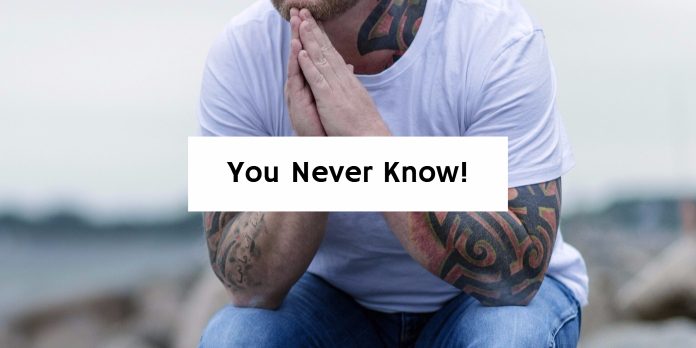By the time I was born, the Great Depression was only a memory. It was an extremely vivid memory, though, for the adults in my extended family. Their ongoing sense of uncertainty, rooted in their experience of economic disaster, was given expression regularly in a sentence that was typically appended to any serious comment they would utter about financial matters: “But, of course, you never know!” That sentence had the status of a kind of liturgical response in ordinary conversations. My grandmother would tell her neighbor that my grandfather might be getting an hourly wage hike at the factory where he worked—“but, of course, you never know,” she would quickly add. Business at my two uncles’ auto repair shop seemed to be picking up—“but, of course, you never know.” Maybe, just maybe, my parents would say, our family would have enough money saved up to take a week’s vacation in the Adirondacks next summer—“but, of course, you never know.”
That sentence did not manage to get embedded in my own financial discourse, nor have I heard it much from others who came after my parents’ generation. But I have no doubt that it, or some equivalent expression, is coming back. We have been learning the “you never know” lesson in a dramatic fashion in recent months. And this learning experience has been a traumatic one.
I once wrote an essay in which I was mildly critical of what I called “pious agnosticism.” This is an attitude that makes so much of God’s mysterious workings in human history that believers decide not to try to influence the course of events—especially when it comes to working for justice and peace. We may think that some apparent social practice is so evil that we must work to change things, but it may be that God is using that practice for his own mysterious providential purposes to bring about some good—“you never know.”
I still think that that kind of pious agnosticism is often a serious defect. But I am becoming a little more of a pious agnostic myself, in at least two ways. One is that I am now aware that when it comes to economic history, I have been too uncritical in accepting the myth of progress. From here on in, if and when we experience some better days in the financial markets, I will remind myself often that “you never know.” But I will also try to nurture the faith that there might even be some providential good in what has been happening. It looks like we are in for some bad times financially—but you never know, maybe the Lord will use this for some greater good. It may even be that we are being given an opportunity to think more deeply about what human flourishing is all about. It may also be that we are being taught something about what it means to trust more deeply in God’s mysterious purposes. At least all of that is a possibility. You never know.
2 Comments »
-
Surely there is room for both–A hopeful attitude that lays hold of the promise that God can work for good in all things, while still doing what we can to combat injustice when the opportunity is given to us.
Thanks for the thoughts.
Comment by Mark Baker-Wright — November 10, 2008 @ 12:23 pm
-
Dr. Mouw, I thought for sure you would of blogged concerning the greatest achievement in the History of the United States since the abolition of slavery: our new President elect Barack Obama. Change has come to America. Mr. Obama gives hope to millions of minorities now that they can rise up and maybe even be a President. The greatest day in America for me in my lifetime was surly November 4th, 2008, and I’m not even Black.
It saddens me when we see Evangelicals as Dr. Dobson and millions others who say they are grieving over Obama’s victory. What has happened the church? It sure isn’t what Christ wants it to be.
Change has come to America, but not to the church.
Comment by Vic Vazz — November 11, 2008 @ 11:52 am






























